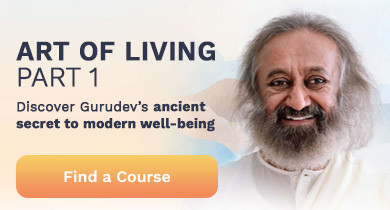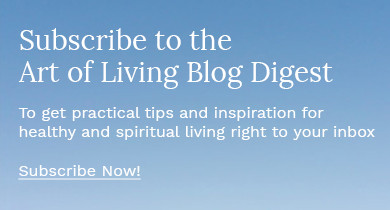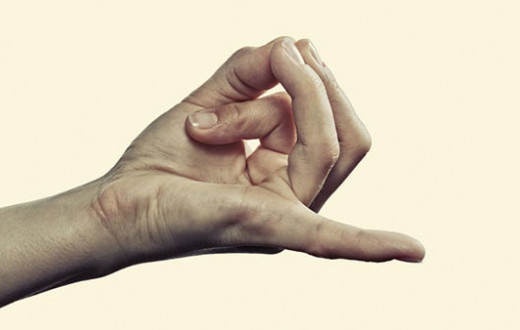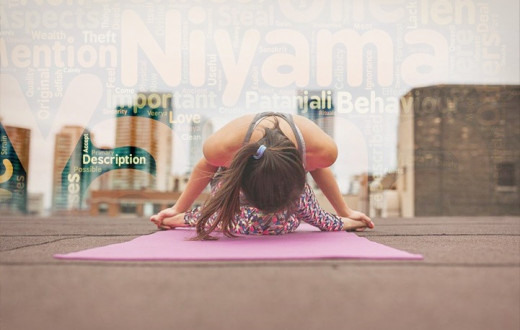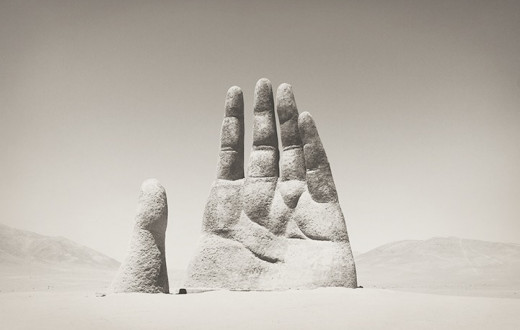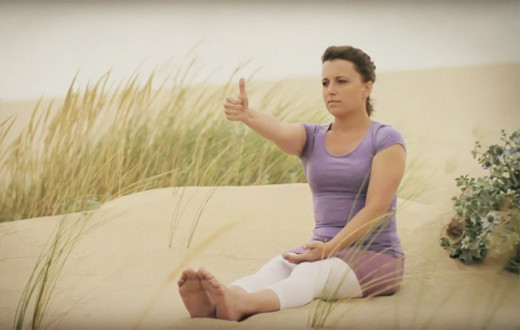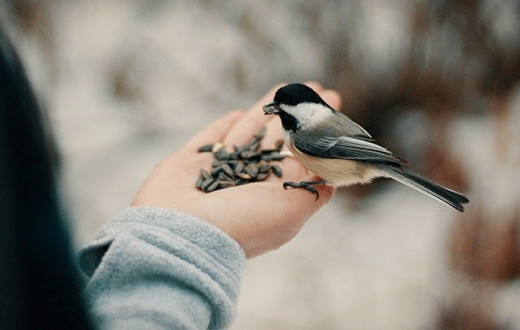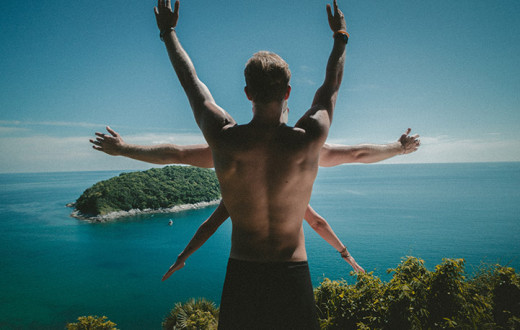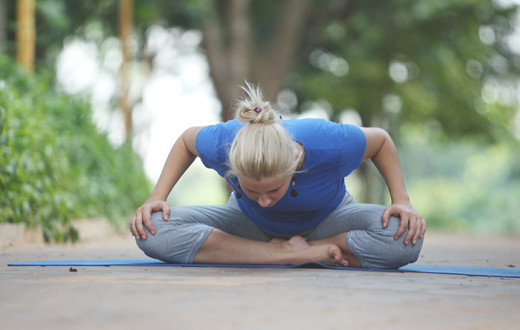
Pigeon pose is a hip opener that safely opens your hip joints. It also helps prepare your body to sit in meditation more easily. Pigeon pose strengthens the back, eases back pain, and is said to open up the heart chakra.
In Sanskrit, Pigeon Pose is called Kapotasana (caap-oh-TAA-saa-nah). Kapota means dove or pigeon, and asana means posture or yoga pose.
Level of difficulty: Intermediate to advanced
Pigeon Pose benefits

Opens tight hips by stretching the thighs, groin, back, piriformis, and psoas muscle
Increases external rotation of the femur in the hip socket and lengthens hip flexors, creating more flexibility in the hips
Stretches the muscles, tendons, and ligaments around the knees and increases circulation in these areas
Improves posture and respiration
Alleviates back pain
Draws the focus inward, calming the mind
Opens up the cervical region and the shoulder joints
Removes accumulated stress from the neck region
Stimulates the thymus gland, improving immune function
Helps relieve sciatica, colitis, and piles
Improves blood circulation to the muscles of the pelvic floor
Helps get rid of excess visceral fat
Prepares you for seated postures and backbends
Precautions and common mistakes for Pigeon Pose

Precautions
This pose is contraindicated for people with knee injuries, recent knee surgeries, spinal, abdominal, or sacral injuries, sacroiliac issues, hip injuries, and those who have undergone recent hip replacement surgery. People with delicate or inflexible wrists should also be careful.
Common mistakes
Rotated rear leg: Your rear leg should be in a neutral position rather than rotated outward. To correct this, tuck your toes under and lift your thigh to adjust your hips so they are square.
Hips not square: Make sure your hips are properly aligned. Don't collapse toward either side. Keep your hips square using props and padding as needed.
Preparatory poses for Pigeon Pose

Step-by-step instructions for Pigeon Pose

There are four variations of the Pigeon Pose:
One-Legged Pigeon Pose
Pigeon Pose
Resting Pigeon Pose
King Pigeon Pose
Here are step-by-step instructions to explore the first three variations:
One-Legged Pigeon Pose
Start with a Cat and Cow Pose to loosen up, then come into a tabletop position on your hands and knees with your hands shoulder-width apart and your knees hip-width apart.
Move the right knee forward on the mat behind the right hand, placing the outer edge of the right shinbone and right buttock on the mat.
Keep the right knee bent and pointing forward.
Stretch the left leg out behind you with the top of the left knee, left thigh, and left ankle resting on the floor. Your left foot should face the ceiling.
With your right heel near the left hip bone, gently lower your pelvis down.
Breathing in, press the palms onto the floor, extend your spine, open the shoulders and chest, and lift the sternum up.
To advance into Resting Pigeon Pose, take a deep breath, and as you exhale, fold forward, bringing your torso over your right leg. Stretch your arms straight in front of you with your elbows slightly bent. Place your forehead on the mat in front of you, and rest with gentle breaths in and out.
To advance into a One-Legged King Pigeon, slowly bring the torso upright, then as you exhale, gently bend the left knee and grab hold of the left big toe with the left hand. Keep the hips square.
Breathing in, open up your chest. Roll the left shoulder externally so that the left elbow points toward the ceiling.
Pull the left foot close to the back of your head.
Hold the pose, and keep breathing.
Inhale, release the left foot and exhale as you straighten the left leg.
Return to the tabletop position, and repeat with the left leg in front.
To increase the challenge:
Mermaid Pose
After step 6, bend your left knee and reach back for your left foot with your left hand. Hook the elbow of your left arm around the top of your left foot. Once you have the hook, reach your right arm up and back to clasp the left fingertips or wrist.
Pigeon Pose

Stand at the front of your mat with feet hip-width apart and arms alongside the body.
Exhale, and come into a Standing Forward Bend.
Inhale, and go into a Forward Lunge with the right leg forward and the left leg back.
Exhale, and place the outside of your right shin on the mat in front of you, with your right heel near your left hip.
Place the left knee down on the yoga mat with the left foot facing the ceiling.
Place the palms down in line with the right foot.
Inhale, press your palms into the floor, straighten your arms, and simultaneously elongate your spine. Open your shoulders and chest, lift your sternum, and look up.
Hold the position for 30 to 60 seconds and breathe deeply.
If you are comfortable, you can proceed to Resting Pigeon Pose or King Pigeon Pose or return to Forward Lunge, then repeat with the left leg in front.
Resting Pigeon Pose
Start in a Downward-Facing Dog Pose on a yoga mat.
Raise your right leg and bring your knee to the back of your right wrist.
Keep your left leg straight and reach it toward the mat.
Bring your right knee outward, past your hips, and flex your right foot toward your shin.
Place your hands under your shoulders and press into your palms to lengthen your spine.
Bring your forehead to the mat, or rest it on your hands, a block, towel, or blanket.
Square your hips.
Make sure you keep breathing, allowing your breath to help ease you into the pose.
To release the pose, slowly lift your forehead and bring your hands toward your hips.
Curl your left toes under and step back into the Downward-Facing Dog Pose.
Repeat on the other side.
Pigeon Pose modifications

To make it easier
If the hip of the leg bent in front of you doesn't touch the floor, use adequate padding under the buttocks on that side. You can use several blankets or a block. It's important to evenly distribute your weight on both hips by keeping your hips square. Otherwise, you are likely to put stress on the knee and twist your sacrum.
If Resting Pigeon Pose is difficult, use a block under your forearms and/or under your forehead. This creates a support system of props so that you can relax into the forward bend.
If Pigeon Pose just doesn't work for you, Thread and Needle Pose is a good substitute.
Follow-up poses for Pigeon Pose
Enhance your yoga practice with SKY Breath Meditation
When practiced regularly, breathing and meditation supercharge yoga's life benefits. To get the most out of your yoga practice, add Sudarshan Kriya Yoga, also known as SKY Breath Meditation.
SKY practitioners report:
Greater mental focus
Healthier blood pressure
Enhanced deep sleep
Mental fortitude
Increased joy and optimism
Decreased stress, anxiety, and depression
Register for the Art of Living Part 1 course to learn SKY today!
Related articles and other yoga poses
Wheel Pose: Gain Flexibility, Open Heart, Release Sadness
Shoulder Stand: Strengthen Your Spine and Core Muscles Today
Bow Pose: Expand Your Chest and Stretch Those Hip Flexors!
Camel Pose: Improve Your Posture and Open Your Heart Center
Vajrasana: The Yoga Pose to Use During Breathing Exercises
Warrior Pose: Gain Hip Flexibility and Inner Strength Now
Triangle Pose: Improve Your Balance, Reduce Back Pain Today
Tree Pose: Live Longer By Balancing On One Foot?
Mountain Pose: Start Your Yoga Practice on the Right Footing
Chair Pose: Taking This Seat Strengthens Your Whole Body
Sphinx Pose: The Heart-Forward Back Bend for More Flexibility
Cobra Pose: Easy Asana For Flexibility and Chest Expanding
Superman Pose: Tone Your Back and Abdomen Muscles and FLY!
Plow Pose: Increase Your Flexibility and Build Strength Now
Sukshma Yoga: This Gentle Yoga Can Relax You in 7 Minutes, Try Anytime
Padma Sadhana: Learn and Master this Beautiful Yoga Sequence Today
Sun Salutation 101: Your Basic Guide to Learn the Age-old Yoga Sequence
Seated Forward Bend with Adi Mudra (Yoga Mudra)
Bridge Pose: An Easy Gluteus Maximus Workout
Fish Pose: Gain Spinal Flexibility with This Chest Opener Pose
Eagle Pose: A Standing Body Twist for Increasing Balance
Reverse Prayer Pose (Paschim Naraskarasana)
Standing Backward Bend (Ardha Chakrasana)
Standing Spinal Twist (Katichakrasana)
Standing Wide-Legged Forward Bend (Prasanta Padottanasana)
Upward Plank Pose (Poorvottanasana)
Lotus Position or Lotus Pose (Padmasana)
Mill Churning Pose: Chakki Chalanasana)
Monkey Pose: Use This Splits Pose for a Deep Hip Opener
One-Legged Forward Bend (Janu Shirasana)
Two-Legged Sitting Forward Bend (Paschimottanasana)
Sitting Half Spinal Twist (Ardha Matsyendrasana)
Locust Pose: Gain Spinal Flexibility and Better Digestion
Upward-Facing Dog Pose: Bolster Your Wrists, Arms, and Spine
Boat Pose: Set Sail For a Stronger Upper Body and Lower Belly
Legs-Up-The-Wall Pose (Viparita Karani)
Lying-down Body Twist (Natrajasana)
Wind-Relieving Pose (Pavanamuktasana)
Lying Down on Sides (Vishnuasana)
Are you interested in becoming a 200H certified yoga teacher?

Sri Sri School of Yoga offers traditional (scripture-based), classical, and authentic teacher training programs globally. Our programs are Yoga Alliance certified. To learn more about teacher training offered in North America, click here!

